Securing Your Office 365 Environment: Our Approach
As businesses increasingly migrate to the cloud, the security of their data and systems is paramount. If you're using Office 365, ensuring your environment is protected is not just essential—it's a responsibility. At Synivate, we understand the intricacies of IT, and we're here to help you navigate them. Let's dive into the importance of securing your Office 365 environment and how Synivate can support your business in doing so.
Why Office 365 Security Matters
While Microsoft Office 365 offers a vast array of tools and functionalities to streamline operations and enhance collaboration, it is also a prime target for cybercriminals. The potential fallout from a security breach can be catastrophic. Not only are there financial implications, but breaches can also damage a company's reputation, customer trust, and lead to legal repercussions.
With the right strategies and support, securing your Office 365 environment is achievable.
Synivate's Office 365 Security Recommendations
When it comes to security, a one-size-fits-all approach doesn't work. Every business is unique, but there are some baseline recommendations that apply across the board. Here's what we advocate:
1. Role Assignments and Privileges:
- No Permanent Privileges: We strongly advise against permanent active role assignments for highly privileged roles. Such roles should have an expiration date, ensuring that unnecessary access isn’t perpetual.
- Secure Provisioning: Assigning users to privileged roles should be done through a Privileged Access Management (PAM) system, like Azure AD PIM. This ensures that controls are not bypassed.
- Activation Requires Approval: Elevating someone to a privileged role should be an action taken with scrutiny and hence should require approval.
- Stay Alert: Any alterations to privileged role assignments—whether making someone eligible or activating a role—should trigger alerts.
2. Authentication:
- Device Management: Managed devices should be the norm for authentication to fortify security.
- Guest User Protocols: Guest users in your Azure AD directory should have constricted access to minimize potential threats.
- High-Risk Users and Sign-ins: Immediate notifications should be sent to administrators for detected high-risk users. Such users and their sign-ins should be promptly blocked.
- Multi-Factor Authentication (MFA): This is a non-negotiable. Every user must use phishing-resistant MFA. If that's not available, another method from the specified list should be used. And to be clear, SMS or Voice should never be the chosen MFA method.
3. Monitoring and Logs:

- Critical Logs: Maintain and regularly send logs like AuditLogs, SignInLogs, RiskyUsers, and more to your agency's Security Operations Center (SOC).
- Application Management: Only administrators should have the power to register or consent to third-party applications. This prevents potential vulnerabilities.
4. Passwords and Sign-ins:
- No Expiry: It's a misconception that frequently changing passwords enhances security. Instead, strong, unique passwords that don’t expire are recommended.
- Sign-in Frequency: We recommend a configuration setting of 48 hours for sign-in frequency.
5. Data Loss Prevention (DLP):
- Policies: DLP policies should be robust, ensuring sensitive information isn't shared recklessly. They should be applied across platforms – Exchange, OneDrive, SharePoint, and Teams.
- App and Browser Restrictions: Specific apps and browsers that are not aligned with your DLP policy should be defined and restricted.
- File Type Management: Certain file types pose more risk than others. It’s essential to block high-risk files like .cmd, .exe, and .vbe.
6. Anti-Malware and Safety Protocols:
- Filters and Policies: Employ filters like the common attachments filter. Also, enable Zero-hour Auto Purge (ZAP) for malware in all policies.
- Safety Tips: Every safety tip available, from domain impersonation to "via" tag policies, should be enabled to prevent phishing and spoofing attempts.
- Quarantine Protocols: Any mail or message detected as spoofed or impersonated should be immediately quarantined.
Partnering with Synivate
We don’t just provide recommendations; we implement, monitor, and adjust. We provide holistic IT support, ensuring that your Office 365 environment remains fortified against threats. With Synivate by your side, you can rest easy, knowing that your IT environment is in professional hands.
As we guide you through these steps, our commitment remains steadfast: to offer clear, business-centered advice without overwhelming jargon. Your security is our priority.
